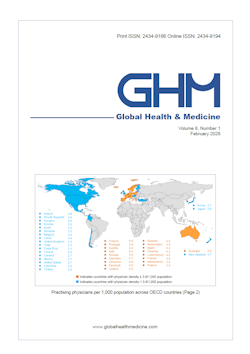Global Health & Medicine 2021;3(1):48-51.
Enhancing the blood safety program in Myanmar: Report on projects of global extension of medical technologies of Japan
Nozaki I, Aung T, Oo NN, Kodoi H, Ito Y, Inaba T, Shiratori K
The National Center for Global Health and Medicine has long collaborated with the blood program in Myanmar, and the Center started a new project in 2015 to enhance blood transfusion safety as part of a new set of projects of global extension of medical technologies that aims to improve public health and medicine in developing countries under public-private partnerships. The project resulted in remarkable achievements, including maintaining a high proportion of voluntary blood donations despite a rapidly growing demand for blood, ensuring blood safety from the donor to the recipient, and creating public-private partnerships. The project supported the introduction of blood grouping using the tube method at hospital blood banks, safety measures during blood transfusions, and effective use of blood products including component blood. The project identified the need for medical devices such as leukocyte filters, serofuges, and refrigerators to store blood products. The success of the project may depend on mutual understanding and trust based on the duration of collaboration, improvement of the requirement for medical safety (including blood safety) in the country, and shifting the mindset of partner companies in public-private partnerships to create new demand by encouraging improvement of the quality of care and requiring the safety of medical care. In this era of sustainable development goals, the hopes are that these experiences will help other countries seeking to improve their public health through public-private partnerships.
DOI: 10.35772/ghm.2020.01071







